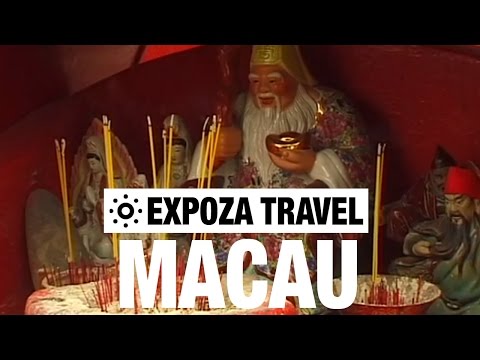
Macau, often known as the “Las Vegas of the East”, is a vibrant city with an intriguing blend of Portuguese and Chinese cultures, offering a unique travel experience. This travel guide will provide you with insights into exploring Macau, not just from the glitzy angle of its world-renowned casinos, but also through its rich history, culture, and cuisine. Whether you’re watching this in video format or reading about it, here’s what you can expect from a trip to this fascinating region.
### Historical Heritage
Macau’s history as a former Portuguese colony is evident in its architecture, culture, and food. A great starting point for any visitor is the UNESCO World Heritage site of the Historic Centre of Macau. Here, you’ll find European buildings alongside traditional Chinese designs. Key landmarks include the Ruins of St. Paul’s, a 17th-century complex originally consisting of St. Paul’s College and the Church of St. Paul, now featuring a stunning façade and grand staircase that are all that remain after a fire in 1835.
Another must-visit is the A-Ma Temple, which dates back to 1488 and is dedicated to the Chinese sea goddess Mazu. The temple complex offers insight into classical Chinese architecture and is an active place of worship for locals.
### Modern Marvels
While steeped in history, Macau does not shy away from modernity; it embraces it with open arms in its Cotai Strip where many of its famous casinos are located. The Venetian Macao Resort Hotel replicates Venice with incredible scale and detail including indoor canals where gondolas glide beneath bridges linking sections of luxury shops and restaurants.
For non-gamblers too, there’s plenty to do – from watching world-class shows to indulging in spa treatments or visiting exhibitions at various galleries within these complexes.
### Gastronomic Delights
Macanese cuisine is as diverse as its culture. It blends Portuguese ingredients and techniques with those from China and even influences from Africa and India due to Portugal’s colonial history. Try popular dishes like African chicken (a spicy grilled chicken dish), Pork Chop Buns (local bread rolls filled with savory pork chops), and Pasteis de Nata (Portuguese egg tart pastry).
For an authentic local experience visit Taipa Village which offers traditional street food alongside upscale dining options showcasing Macanese fusion cuisine.
### Nature Escapes
Beyond urban entertainment, Macau also offers pockets of nature for those looking to unwind amidst greenery after days spent amidst crowds. Coloane Island features hiking trails that offer scenic views over southern China Sea apart from beaches like Hac Sa (Black Sand) Beach which provide serene spots for relaxation or picnics under swaying palm trees.
Coloane Village retains a more laid-back charm compared to bustling mainland Macau; here one can enjoy leisurely walks along narrow lanes flanked by pastel-colored houses followed by waterfront dining at one of many cafes overlooking tranquil waters.
### Practical Tips for Travelers
Before rounding up your virtual tour through video or multimedia guides make sure to note some practical aspects:
– Currency: The currency used is Macao Pataca but Hong Kong dollars are widely accepted.
– Language: While Cantonese remains dominant language Mandarin English are commonly used especially around tourist areas.
– Transportation: Getting around is easy thanks to efficient public transport systems including buses shuttles provided by hotels/casinos.
– Visa requirements vary so check entry requirements based on your passport before planning trip.
### Conclusion
Whether captured on camera narrated over videos Macau’s offering extends far beyond bright lights excitement surrounding gaming tables making it compelling destination those interested in cultural experiences gastronomic adventures alike!
